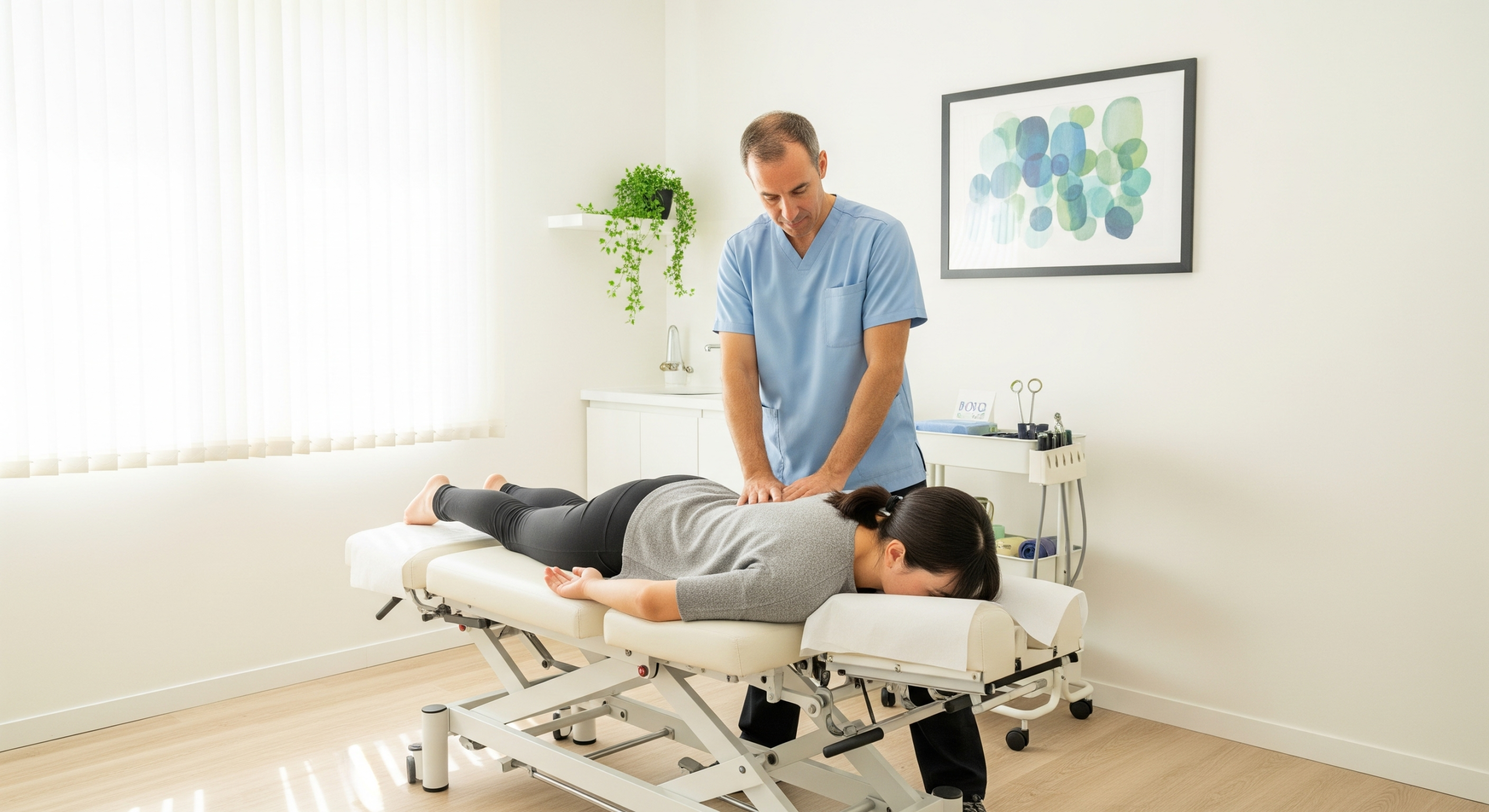Sleep apnea isn’t just about snoring—it’s a serious condition that affects millions, disrupting sleep and increasing the risk of heart disease, stroke, and even depression. Traditional treatments like CPAP machines and dental appliances help, but what if your spine and nervous system are also part of the problem? That’s where chiropractic care comes in. More than just back cracking, chiropractic adjustments may offer a complementary route to relief by addressing the alignment and function of the spine and airway.
Jump to:
TLDR – Quick Guide
- Problem: Sleep apnea disrupts breathing during sleep, leading to poor rest and health issues.
- Why It Matters: Misalignments in the spine can affect breathing and airway function.
- Solution: Chiropractic care can realign vertebrae, reduce tension, and support better airflow.
- Tools: Chiropractic adjustments, posture improvement, and nervous system regulation.
- Goal: Improve sleep quality, reduce apnea symptoms, and enhance overall wellness.
Detailed Breakdown
1. Understanding Sleep Apnea Beyond the Airway
Sleep apnea occurs when breathing is interrupted during sleep—commonly due to obstructed airways (obstructive sleep apnea or OSA), or when the brain fails to send proper signals (central sleep apnea). While most treatments focus on the throat or respiratory support, few consider the structural integrity of the spine, especially the neck and upper back.
2. The Spinal Connection to Breathing
Your spine protects your nervous system, which controls everything—including breathing. Misalignments, particularly in the cervical spine (neck region), can impair nerve signals and compromise muscle tone that keeps your airway open. Chiropractic adjustments target these specific areas to improve nerve function and help restore proper breathing mechanics.
A study from the Journal of Sleep Medicine Reviews has pointed out that muscular tension and posture can significantly impact sleep-disordered breathing.
3. How Chiropractic Adjustments May Help Sleep Apnea
Here’s how chiropractic care supports sleep apnea sufferers:
- Improved Nerve Function: Adjustments reduce interference in the nervous system, aiding respiratory control.
- Postural Alignment: Helps open the chest and throat areas for easier breathing.
- Reduced Inflammation: Decreasing spinal stress lowers body-wide inflammation, potentially easing tissue swelling in the airway.
Clinics like Upright Posture often incorporate Advanced BioStructural Correction™ (ABC) to support spinal and respiratory health holistically.
4. Chiropractic Care as a Complement, Not a Cure
Let’s be clear: chiropractic care isn’t a silver bullet. It’s not a replacement for CPAP or medical therapies. However, it can be a powerful complement—especially for those who:
- Find CPAP devices uncomfortable
- Have posture-related airway obstructions
- Experience tension in the neck and back
Patients often report improvements in breathing, reduced snoring, and better sleep quality when chiropractic care is added to their routine.
5. What to Expect from a Chiropractic Evaluation
A sleep apnea-focused chiropractic evaluation includes:
- Postural analysis
- Spinal alignment assessment
- Range of motion tests
- Review of breathing patterns
The goal is to create a personalized care plan to support airway health, spinal alignment, and nervous system efficiency.
Key Takeaways
- Sleep apnea has structural and neurological components that chiropractic care may help address.
- Spinal misalignments can affect respiratory function by disrupting nerve signaling.
- Chiropractic adjustments can improve posture, reduce inflammation, and enhance breathing.
- It’s best used as a complementary therapy alongside traditional treatments.
- A thorough chiropractic evaluation can tailor care to support better sleep and breathing.
FAQs
1. Can chiropractic care cure sleep apnea?
No, chiropractic care isn’t a cure but a supportive treatment. It works best when combined with traditional therapies like CPAP or oral appliances.
2. What kind of sleep apnea responds best to chiropractic care?
Obstructive sleep apnea may benefit more from chiropractic adjustments, especially if poor posture or spinal misalignment is contributing to airway collapse.
3. Is chiropractic care safe for people with sleep apnea?
Yes, when performed by a licensed professional. Chiropractors assess your health history and tailor treatment to your needs, often working in tandem with your sleep specialist.
4. How soon can I expect results from chiropractic care?
Some patients notice better sleep and less snoring within a few weeks, while others see gradual improvements over a few months depending on the severity and underlying issues.
5. Do children with sleep apnea benefit from chiropractic care?
Yes—especially if caused by structural issues or poor posture. Pediatric chiropractic care can help improve airway alignment and reduce nighttime symptoms.






